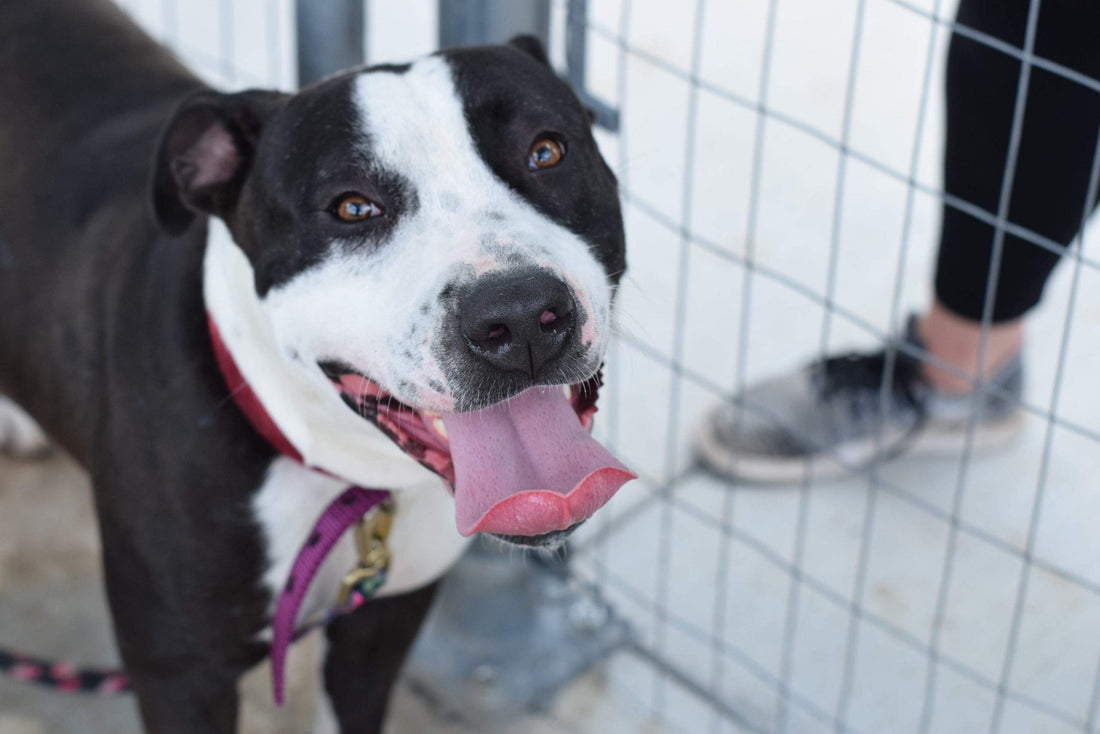
Pet Obesity Facts You Should Know-6 Major Hazards Caused by Pet Obesity
Share

Pet health has always been one of our main concerns as pet owners. Because for most pet owners, cats and dogs are our family members, and we wish for them to grow up to be as healthy and happy as our children. Usually, we give them dry or wet food, sometimes buy them many pet snacks, or some pet owners make homemade food for them to eat as a reward. Pets, on the other hand, have no idea that eating too much will make them obese. Thus, they do not know how vital it is for them to be in good health. But as pet owners, we must understand the hazards of obesity to pet health and try and find some ways to tackle this vital issue which is particularly crucial for the healthy growth of pets .
According to the latest research by PDSA, due to the impact of the global pandemic that started in 2020, the British government has implemented various lockdown policies. Since March 2020, approximately 1.4 million four-legged friends in the UK have started to gain weight. Since the lockdown began, 16% of dog owners have fed more snacks, 10% have fed more human food, and 8% have reported that their dogs have gained weight. 17% of cat owners have also fed more snacks, 5% have fed more human food, and 9% have reported that their cat has gained weight. Hence, it is evident that the health of our pets has been potentially negatively affected.
How Can We Check Whether a Pet Is Obese?
Look
One of the easiest ways to determine if a dog is obese is to look at its body type. If your pet is obese, too much fat will accumulate in the abdomen, so the dog will end up having a big belly. Moreover, you also need to observe your pet’s back. If both sides are square, then your dog may be outside the range of a healthy weight.
Touch
The owner can touch their pet’s body with their hands. If your pet’s ribs are not very prominent, but you can easily feel them without having to press hard, then the pet’s body shape is normal. However, if it is difficult for you to feel their ribs by touching them, it is probably because too much fat has been accumulated.
Observe your pet’s behavior
Usually, overweight and obese pets are not very active, and they spend a lot of time around their food. If your dog has become too lazy to move, has difficulty walking, has difficulty breathing while walking, and usually finds it a little challenging to move, they may be fat. In addition, if you feed your pet irregularly every day (including snacks, homemade food, etc.), these behaviors will aggravate the pet’s health problem.
What Are the Dangers of Obesity to Pets?
Shortened lifespan
Obesity can have a variety of adverse effects on a pet’s health. Pet obesity is the main reason why our furry friends may have a shorter lifespan. Under normal circumstances, the lifespan of overweight pets is shorter than that of pets that have a normal weight. Obesity is the key factor that can cause various chronic diseases, such as diabetes, heart disease, and respiratory disorders.
Heatstroke
Summer weather is becoming increasingly hot as a result of global warming. Obese pets are more prone to heatstroke, as the various fat levels will hinder heat dissipation, especially for pets of short-nosed breeds, such as Persian cats, Pekingese, Shih Tzus, Pugs, English Bulldogs, French Bulldogs, etc. Pet heatstroke is a threat to the health and life of pets. If your pet has uncontrollable bloody diarrhea, shortness of breath, or abnormal drooling, then you must take it seriously. In certain circumstances, it is necessary to visit a veterinarian to have the pet’s health checked as soon as possible. Because your pet may succumb to heatstroke and die.
Heart disease
Obese dogs may have a high risk of cardiovascular and cerebrovascular diseases. Whether it is in humans or animals, fat does not only accumulate because of the sebum. If we are overweight, our blood will also include an excessive amount of fat. This can easily lead to the recurrence of cardiovascular and cerebrovascular diseases and increase the burden on the heart. The heart is the body’s powerhouse. If our heart has difficulties, other organs will eventually have problems, and various ailments may arise on a sporadic basis.
Diabetes
Obese pets are more likely to have diabetes than pets that have a normal weight. For humans, diabetes is a chronic disease that requires long-term medication to maintain body functions. For pets, too, obesity can lead to diabetes. The number of insulin receptors in a pet’s fat and muscle can be reduced or damaged due to obesity. According to research, the more efficient dogs are in removing glucose from their blood after meals, the longer they will live and the better their quality of life will be. In other words, a normal-sized dog without diabetes can live longer than an obese pet.
Arthritis, ligament injury
Overweight pets are more likely to develop severe arthritis than healthy pets. If the pet’s body is too fat, its limbs will be under a lot of pressure from an aesthetic standpoint. Over time, the excessive weight will cause an extra burden on the body and will start causing damage. If the weight is too much, it may cause the pet’s anterior cruciate ligament to be strained, and this may cause a tear. If your pet does have a torn ligament, it usually requires surgery to repair it. Even for humans, a torn ligament is a terrible condition. In addition, overly obese dogs generally have long waists and short legs. Like Pekingese, Dachshunds, Bulldogs, etc., the obese body makes the lower body unable to support the excessive weight, and the pressure on the waist may also be too much and, therefore, cause disability in the dog’s lower body.
Respiratory diseases
Like in humans, obesity can cause breathing problems for pets. Excess fat on the chest wall and abdomen will compress the cavernous lungs, reducing the amount of air inhaled, and the lungs will stop working correctly. The additional fat in the chest will reduce the lungs’ ability to expand, causing them to expand less during inhalation. Shortness of breath is caused by a dogs’ decreased tolerance for exercise; the amount of exercise is reduced; and the pet will likely begin sleeping on its stomach. Many pet owners who have seen their pets lose weight report that their pets’ ability to play has considerably improved due to their weight loss.
What Do Pet Owners Say?
Chubby pets are cute, but they are more likely to get sick if we overindulge them by feeding them high-calorie snacks every day and not taking them out for exercise regularly. The pet’s life expectancy may be shortened, and this is unacceptable for most pet owners. We all want our babies to grow up happy and healthy and have a longer life span. For this reason, we spoke to some pet owners. We asked them to share their thoughts on keeping their pets’ weight in check and leading a healthy lifestyle.
The first person we interviewed was our teacher Fanfan, she is an ACI registered senior nutritionist. She is also the chief experience officer of Yoga View. She has two golden retrievers, JJ and Rachel.
“I believe the same may be said about our pets, particularly the golden retriever. They require a lot of exercise daily. However, due to living space limitations and how we walk dogs, their exercise regime is insufficient. That’s why they need extra calcium supplements, especially during their aging stages. You should still take them out to get some sun and go for a walk, in addition to supplying the crucial vitamin calcium. I often take them out, usually to the countryside. Because only there I can let them off the leash and let them have fun and run to their heart’s content. ” —-Fanfan
In the following interview, we talked to our website’s content and proofreading editor, Lia, who has three adorable dogs and six years of experience owning a pet.
“Obesity can cause diabetes in pets and heart problems as well. This is why all my dogs get plenty of exercise and are at the weight they should be. We go out two to three times a day, about half an hour each time. We either play “fetch”, or the dogs play with each other, and sometimes we all just run up and down together. So, in total, the dogs go for a walk for about two hours each day. I will sometimes give them chicken, carrots, apples, and bananas too, as a treat.” — Evangelia Fragouli
Next, we interviewed Rita. She is the owner of Bianca.Who is raising a very loveable Chinchilla Persian.
“I believe that everyday exercise and activities with the owner are necessary to strengthen the connection between the owner and their pet. Obesity in pets is just as dangerous as it is in humans, and it can lead to poor quality of life and early death. We must weigh the food and give pets the correct amount daily. Bianca’s exercise is with her interactive toys (LED ball and butterfly). The advantage is that she expends energy while remaining calmer and less destructive. Bianca’s favorite wet food is Gourmet Nature Creations (chicken). I never give her homemade food or raw food.”— Rita
